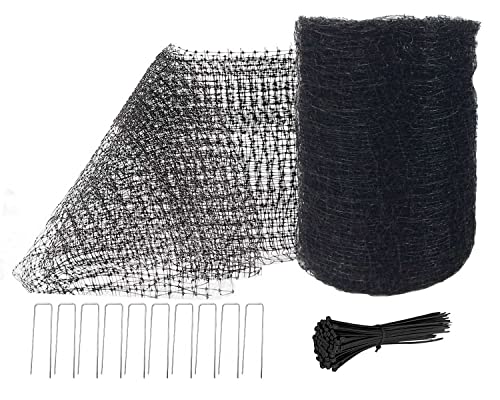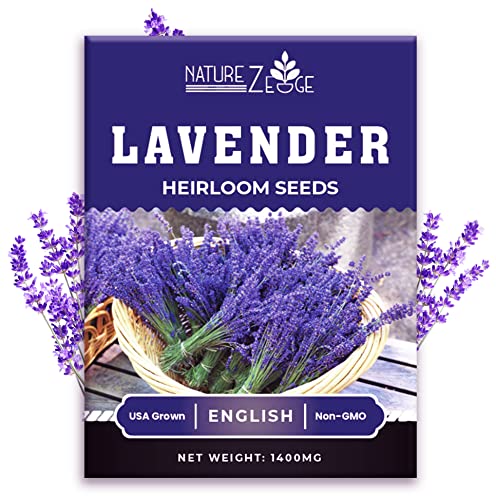I have always been curious about whether deer actually avoid eating Rose of Sharon or if it is just a myth. As a nature lover with a passion for all things deer-related, I set out to find the answer. Do deer eat Rose of Sharon? Let’s explore the facts and find out!
Do Deer Eat Rose of Sharon?
Rose of Sharon is not a preferred food source for deer, as reported by various sources. However, deer may resort to eating it if they are extremely hungry and no other sources of food are available. Rose of Sharon is known to be an antioxidant-rich salad ingredient for humans, but it is not a preferred option for deer compared to other plants like hostas or hydrangeas. If hungry enough, deer may browse on the plant, causing damage to its foliage and flowers.
That’s why, it is essential to take precautions to protect your precious garden plants even if they are deer resistant.
Characteristics of Deer-Resistant Plants
Deer-resistant does not mean deer-proof, as most plants may still be browsed upon by deer. It only implies that they are less appealing to them, and if hungry enough, they may resort to trying them out.
Some plants, like daffodils or lily of the valley, are almost entirely deer-proof due to their toxic composition. Gardens that border forests or natural areas should consider planting more deer-resistant plants to reduce the chance of damage to the garden.
How Rose of Sharon Fits into this Category?
Although Rose of Sharon is generally classified as a deer-resistant plant, it is not invulnerable to deer grazing. Its stunning light purple petals, adorned with red streaks, are quite alluring. Nonetheless, compared to other plants that deer find irresistible, Rose of Sharon is typically a penultimate food choice for them. Gardeners must take this into account and exercise caution, especially in wintertime when deer are most famished and actively searching for sustenance.
How to protect your garden from deer
Are you tired of waking up to destroyed gardens, eaten fruits and veggies, and hoof prints all over the place? It’s no secret that deer can be a challenge for any gardener. But don’t worry, here’s a comprehensive list of all the ways you can protect your garden from these adorable yet troublesome creatures.
1. Fences
Deer can jump over most fences but you can install a barrier that is at least 8 feet (2 m) high to make it harder for them. Another option is to set up a double fence roughly 4-6 feet apart so when a deer jumps they get caught in between the two fences.
If you decide to install a fence, making sure that deer can’t see what’s on the other side will enhance its effectiveness. This is because deer will not take a chance to jump if they are unsure of where they are going to land.
2. Spiky Barriers
Deer don’t like walking on surfaces that are uncomfortable for them such as spikey ones. You can lay down chicken wire or even a plastic mesh netting to effectively protect your plants from deer.
3. Scare Tactics
Frightening deer can be an option too. You can use shiny objects or wind chimes that move in the wind. You can also scare them by using motion-activated devices that spray water. Deer view these as threats and will avoid your garden.
4. Plant Repellents
You can also use plants to protect other plants. Certain herbs like rosemary and sage are quite potent and will discourage deer from eating. Other options include marigolds, foxglove, and daffodils which deer tend to avoid due to their bitter taste.
You can also use a special deer repellent spray like this one:
5. Fake Predators
Setting up a decoy like a fake owl, snake, or even human hair can scare deer into thinking there are predators around. These will make deer more cautious to enter your garden and will be likely to find another feeding ground.
6. Motion Activated Lights
Deer are creatures of the night and setting up motion-activated lights can be a good way to scare them off. They don’t like unusual brightness or sudden shadows which will cause them to flee.
7. Deer-Resistant Plants
If you can’t beat them, join them. Deer prefer certain plants over others, so make smart choices when deciding what to plant. You can choose from various deer-resistant flowers and shrubs like lavender, butterfly bush, and yarrow.
8. Netting
Covering your plants with bird netting is another option to keep deer from eating them. It’s lightweight and easy to install on your own.
9. Electronic Repellents
Electronic devices can be used to emit ultrasonic sounds or timed distress calls to scare deer away.
10. Human Presence
Sometimes a human presence is enough to scare deer off from your garden. Moving around frequently can be enough to convince them to avoid the area. No matter which option you choose, these 10 ways to protect your garden from deer are all unique and effective. Why not try a few and see what works best for your garden?
Planting and Maintaining Rose of Sharon for Maximum Deer-Resistance
While Rose of Sharon is not entirely deer-resistant, planting it in a strategic way can help prevent too much damage to the plant. It would help plant the shrub away from deer-populated areas or near plants they find more appealing. Additionally, it would be best to prune the shrub regularly to maintain a dense, full form. A healthy Rose of Sharon plant is more likely to withstand damage from deer browsing.
Tips to Enhance Rose of Sharon’s Deer-Resistance
Here are some practical tips to enhance the deer-resistance of your Rose of Sharon plant:
- Use deer repellents around Rose of Sharon to deter them from browsing.
- Plant prickly or spiny plants near Rose of Sharon to help keep deer at bay.
- Consider planting a broad mix of deer-resistant plants in your garden to reduce wildlife pressure on a specific plant.
- Choose Rose of Sharon varieties that have thicker foliage or are less attractive to deer.
By following these tips, you will be able to enhance your Rose of Sharon’s deer-resistance and enjoy its beauty for years.
FAQ
How to prevent deer from entering your yard?
Deer are known to be notorious garden invaders, but there are several effective ways to deter them from your yard. Using sound emitters, sprays made from natural ingredients like hot pepper and garlic, and planting deer-resistant plants like Rose of Sharon are all effective methods of keeping these pesky animals away. By implementing a combination of these techniques, you can successfully protect your garden and crops from deer damage.
Which plants deter deer?
If you’re looking for a natural way to keep deer out of your garden, consider planting herbs like thyme, sage, and rosemary. These plants have strong fragrances that deer find unappealing and will avoid coming near. Additionally, flowers like daffodils, snowdrops, and Alliums are also known to be unappetizing to deer. Incorporating these plants into your landscape can help deter deer while also adding beauty to your outdoor space.
Conclusion
So, do deer eat Rose of Sharon? The answer is not a straightforward one, as it depends on various factors, such as the availability of other food sources and the level of hunger of the deer. While Rose of Sharon is not a preferred food option for deer, they may still consume it if they have no other choice. Therefore, if you’re a fan of this beautiful plant, it’s important to take measures to protect it from hungry deer.
Whether you’re a gardener or a nature enthusiast, knowing which plants are more or less attractive to deer is always useful information. While Rose of Sharon may not be a deer’s first choice, it’s still important to be aware of the potential damage they can cause. So, next time you encounter a deer in your garden or hike in a natural area, keep in mind that even the less preferred plants can be a meal for them when times are tough.
You may also be interested in reading:








